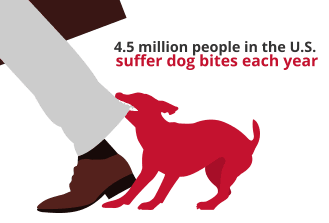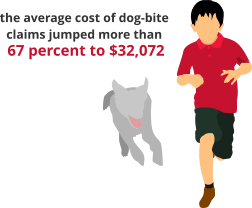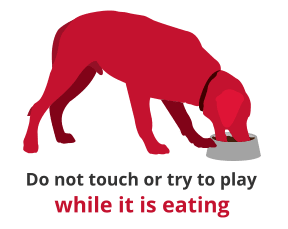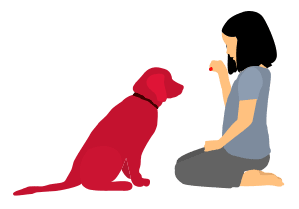
With 68% of American households owning dogs, it is clear they are man’s best friend. Yet even the most friendly animals will bite if mistreated, provoked or put in a defensive situation.
 An estimated 4.5 million people in the U.S. suffer dog bites each year, according to the U.S. Centers for Disease Control and Prevention. Approximately 885,000 victims of dog attacks sustain serious enough injuries to require medical treatment, the Insurance Information Institute (III) reports.
An estimated 4.5 million people in the U.S. suffer dog bites each year, according to the U.S. Centers for Disease Control and Prevention. Approximately 885,000 victims of dog attacks sustain serious enough injuries to require medical treatment, the Insurance Information Institute (III) reports.
About half of the victims of dog bites are children. Many injuries occur during warmer months when children spend more time outdoors, increasing the likelihood they’ll encounter neighborhood dogs. Even when playing with the family dog, children are likely dog-bite victims. Family dogs may get agitated during horseplay and the children may fail to recognize the warning signs and reasons a dog might bite.
The American Veterinary Medical Association reports that any dog that bites can seriously injure a person. The group also finds that breed is a poor indicator of whether an animal will bite.
 Dog bites can be expensive. According to the institute reports, bites and other dog-related injuries accounted for a third of all homeowners insurance liability claims paid out in 2014, more than $530 million.
Dog bites can be expensive. According to the institute reports, bites and other dog-related injuries accounted for a third of all homeowners insurance liability claims paid out in 2014, more than $530 million.
From 2003 to 2014, the average cost of dog bite claims jumped more than 67% to $32,072.
How to Avoid Dog Bites?
The American Society for the Prevention of Cruelty to Animals suggests that parents teach children to follow these steps to avoid being bitten.
 Don’t stare into a dog’s eyes.
Don’t stare into a dog’s eyes.- Avoid teasing dogs behind fences or going near dogs chained in yards.
- Don’t touch dogs running loose outside.
- Avoid running and screaming if a loose dog comes near. Instead, stand still and be quiet.
- Do not touch or try to play with a dog while it is eating or sleeping.
- Before petting a strange dog, ask the pet’s owner for permission. Then let the animal sniff your hand before touching it.
The organization also offers these tips for parents and children:
 Supervise: Make sure you keep an eye on children when they play with dogs.
Supervise: Make sure you keep an eye on children when they play with dogs.- Avoid excitement: When children play with pets, make sure they remain calm so the dog doesn’t get excited and bite.
- Stay away from sick animals: Children should avoid animals that appear hurt or ill because they’re more likely to act defensively.
- Don’t invade: Dogs protect their toys, food, and homes. Avoid getting into their space.
- React to warnings: If a dog puts its ears back, moves stiffly or slowly, raises the fur on its neck, or begins to growl or bark, teach your child to count to five and start moving backward slowly without looking into the dog’s eyes.
- Protect head and face: Children should roll into a ball and hold still if a dog attacks.
What Should I Do After a Dog Bite or Attack?
Imagine the unthinkable: you’re enjoying a peaceful walk when suddenly a dog charges, attacking you without warning. Unfortunately, dog bites are frightening – nearly five million happen yearly. These attacks can cause severe physical injuries, emotional trauma, and in the worst cases, even death.
If this happens to you, know this: North Carolina law may be on your side. You could be entitled to compensation. While dog bite laws are complex, we’re experts and we’re here to help. We understand the ‘One Bite Rule,’ ‘Strict Liability,’ and local ordinances that can impact your case.
Don’t face this alone. After you’ve received the necessary medical care, contact us. We’ll fight tirelessly to protect your rights and help you obtain the compensation you deserve.
Take Steps to Prevent Bites
- Before bringing a dog into the home, talk with a veterinarian, animal behaviorist, or responsible breeder to determine which type of dog would be best for your family and neighborhood.
- Get to know a dog before acquiring it and avoid bringing a dog into a home with an infant or toddler, especially if the animal is aggressive.
- Be aware that children may be afraid of dogs. Never leave an infant alone with a dog.
- Teach your dog to socialize with other dogs and people.
- Teach your children not to bother a dog while it is sleeping or eating.
- Be careful about putting your dog into new situations, as it might not respond well.
- If your dog becomes aggressive or develops unwanted behavior, seek advice from a veterinarian, animal behaviorist, or responsible breeder.
Even after a dog owner’s best efforts and training, a dog may bite or attack, causing serious injury and even death. If you or a loved one has been bitten by a dog owned by another, contact a Raleigh dog bite attorney experienced in handling dog-bite cases to help you obtain the compensation you and your family deserve. Don’t let the bite of an aggressive dog damage your life.
Here are some other resources that we suggest you read:





Leave a comment